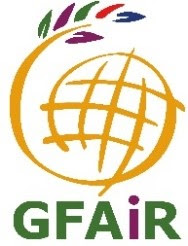
11-12 December 2025. Nairobi, Kenya.
Residential Workshop on Transformative Teaching of Neglected and Underutilized Species (NUS): Linking Education, Innovation, and Enterprise Development.
Background
The transformation of agri-food systems is increasingly recognized as a global priority in addressing the interconnected challenges of food security, nutrition, biodiversity loss, and climate change. Within this context, Neglected and Underutilized Species (NUS) are key to advancing nutrition, climate resilience, and sustainable food systems. However, despite their nutritional richness and adaptability, NUS remain marginal in education, limiting opportunities for research, innovation, and NUS enterprise development.
The Network for NUS Education and Curriculum Development—linking universities from Africa, Latin America, the Caribbean, and India— therefore aims to integrate NUS into real-world innovation, trade, and enterprise development.
This two-day residential workshop will bring together lecturers, researchers, and innovation partners to explore transformative teaching models for NUS, focusing on entrepreneurship, accelerators, and MSME incubation.
The Global network on NUS Education will be launched during the residential workshop.
It is organised by the Global Forum for Agricultural and Innovation Research (GFAiR) and Regional Fora: under the Collective Action Higher Education (CA-HE) Network for NUS Education and Curriculum Development, in partnership with the Regional Universities Forum for Capacity Building in Agriculture (RUFORUM), and funded by the International Foundation for Science (IFS, Sweden).
The workshop builds on ongoing collaboration within the CA-HE Network, which seeks to transform higher education through innovation-driven approaches to sustainable food systems. It will be the first delivery milestone of the NUS Network and serve as a launchpad for continued curriculum design and module development over the next 12 months, supporting universities in piloting and refining NUS-oriented courses and teaching tools.
Objectives:
- Equip educators with tools for entrepreneurial and systems-based teaching of NUS
- Co-design a curriculum framework and module outlines linking NUS education with innovation, trade, and technology
- Foster collaboration among universities, CGIAR centers, and private sector actors
Approach and Methodology
The workshop will adopt a participatory and experiential approach that blends plenary discussions, case study showcases, and co-design labs to promote cross-learning and innovation. Lessons and experiences from India, Latin America, and Africa will be shared early in the programme to inspire reflection and guide practical group activities. Through breakout co-design sessions, participants will collaboratively develop draft teaching and accelerator-linked models. The outputs from these sessions will serve as a springboard for continued curriculum design and module development within subsequent CA-HE Network activities over the following 12 months.
Programme Summary:
- Day 1: Framing the context of NUS and co-designing ideas for integrating NUS into teaching and curricula
- Day 2: Linking NUS education with innovation ecosystems, strengthening partnerships, and defining next steps for continued curriculum development
Expected outcomes:
- Prototype modules on NUS and entrepreneurship.
- Strengthened partnerships for NUS innovation ecosystems.
- Trained educators and facilitators for accelerator-linked teaching.
Participants
The workshop will bring together approximately 50 participants representing universities, research institutions, development partners, and innovation ecosystems from Africa, India, Latin America, and the Caribbean. They will specifically include the following categories:
- University lecturers and curriculum developers in food systems, agriculture, or nutrition
- Researchers and innovation managers interested in NUS-based enterprise
- Business incubator leads and MSME accelerator coordinators
- Graduate students or early-career professionals in NUS education and innovation
- Representatives of CGIAR centers
This multidisciplinary mix will ensure a dynamic exchange of ideas and experiences across academic, research, and entrepreneurial domains. Their diversity and expertise will also foster a vibrant community of practice, equipped to advance curriculum transformation and NUS-focused innovation through subsequent CA-HE Network activities.

